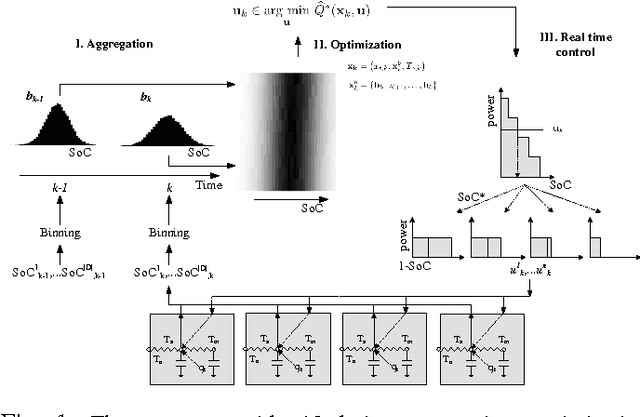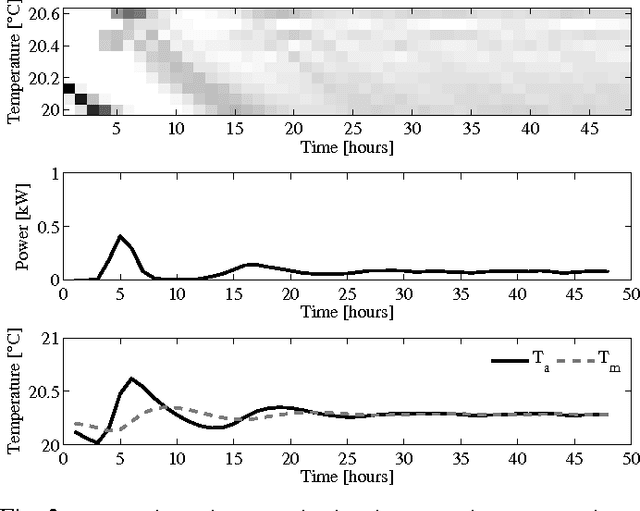Convolutional Neural Networks For Automatic State-Time Feature Extraction in Reinforcement Learning Applied to Residential Load Control
Paper and Code
Oct 11, 2016



Direct load control of a heterogeneous cluster of residential demand flexibility sources is a high-dimensional control problem with partial observability. This work proposes a novel approach that uses a convolutional neural network to extract hidden state-time features to mitigate the curse of partial observability. More specific, a convolutional neural network is used as a function approximator to estimate the state-action value function or Q-function in the supervised learning step of fitted Q-iteration. The approach is evaluated in a qualitative simulation, comprising a cluster of thermostatically controlled loads that only share their air temperature, whilst their envelope temperature remains hidden. The simulation results show that the presented approach is able to capture the underlying hidden features and successfully reduce the electricity cost the cluster.
 Add to Chrome
Add to Chrome Add to Firefox
Add to Firefox Add to Edge
Add to Edge